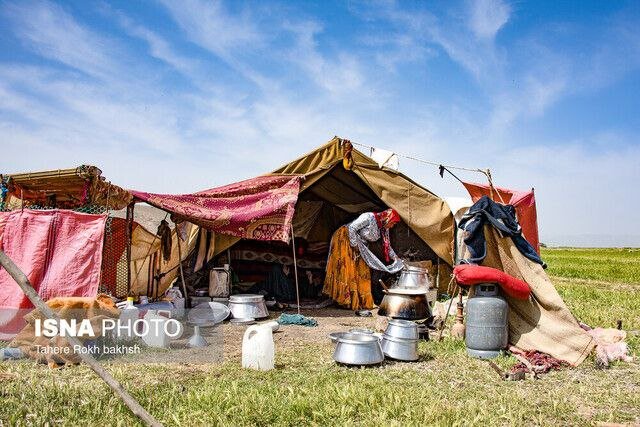Tehran hosting National Day of Villagers, Nomads

TEHRAN – The National Day of Villagers and Nomads is being held in Tehran on October 6 and 7, with a focus on integrated, participatory, and technological governance.
In 2013, October 7 was registered on the national calendar as the National Day of Villagers and Nomads to highlight the vital role of villagers and nomads in the country's political, economic, and social development.
This year, the event includes a series of conferences, exhibitions, as well as cultural and specialized festivals, ISNA reported.
Some 31 provinces are participating in the event, laying the ground for presenting development and empowerment projects, successful participatory models, investment capacities, modern ideas and technologies for villages and nomads, and deprivation alleviation.
On the sidelines of the event, an exhibition of provincial achievements, governance ecosystem, and rural innovation and technologies is being held.
Empowering rural communities 'essential'
In February, the Vice President for Women and Family Affairs, Zahra Behrouz-Azar, said empowering rural communities is a prerequisite for the economic and cultural development of the country.
Referring to the difference between the concept of village and local community, the official said, “The rural areas’ economic activities involve agriculture, animal husbandry, crafts, and natural resources.
However, the local community has a broader concept and includes different groups of people, not only in rural areas, but also in urban neighborhoods, nomadic areas, and even digital communities. Local communities rely on social interactions, traditions, beliefs, and shared human relationships.”
The official made the remarks via a video conference while addressing an event called “university, social responsibility, and empowering local areas”, Mehr news agency reported.
In villages, the development of agricultural infrastructure, animal husbandry, health, and education are basic needs, while in local communities, issues such as preserving culture, fostering social interactions, and strengthening support networks are significant.
Referring to the fact that only 30 percent of the country’s population resides in villages, Behrouz-Azar said depopulation of rural areas will result in losing a significant proportion of cultural heritage, art, language, and lifestyle.
The official went on to urge universities and educational centers to utilize their knowledge and modern technologies to address current challenges in rural communities, help boost their productivity, and improve the quality of life of farmers, particularly women farmers, since they play a key role in empowering rural communities.
World Rural Development Day
Declared by the UN General Assembly as World Rural Development Day, July 6 highlights the vital roles of rural communities in agricultural development, food security, and ecological stewardship, and calls for their empowerment through access to land, decent work, and inclusion in decision-making.
It reaffirms the General Assembly’s unwavering commitment to the 2030 Agenda for Sustainable Development.
This declaration, steeped in the spirit of international solidarity, acknowledges the deep-rooted challenge of rural poverty and the necessity of addressing it as a precondition for achieving the broader goals of economic, social, and environmental sustainability.
Drawing from a lineage of global declarations and resolutions—from the Universal Declaration of Human Rights to the Addis Ababa Action Agenda—the resolution seeks to shine a sustained light on the lives and struggles of those who till the soil, harvest the seas, and nurture the land in rural corners of the world.
MT/MG
